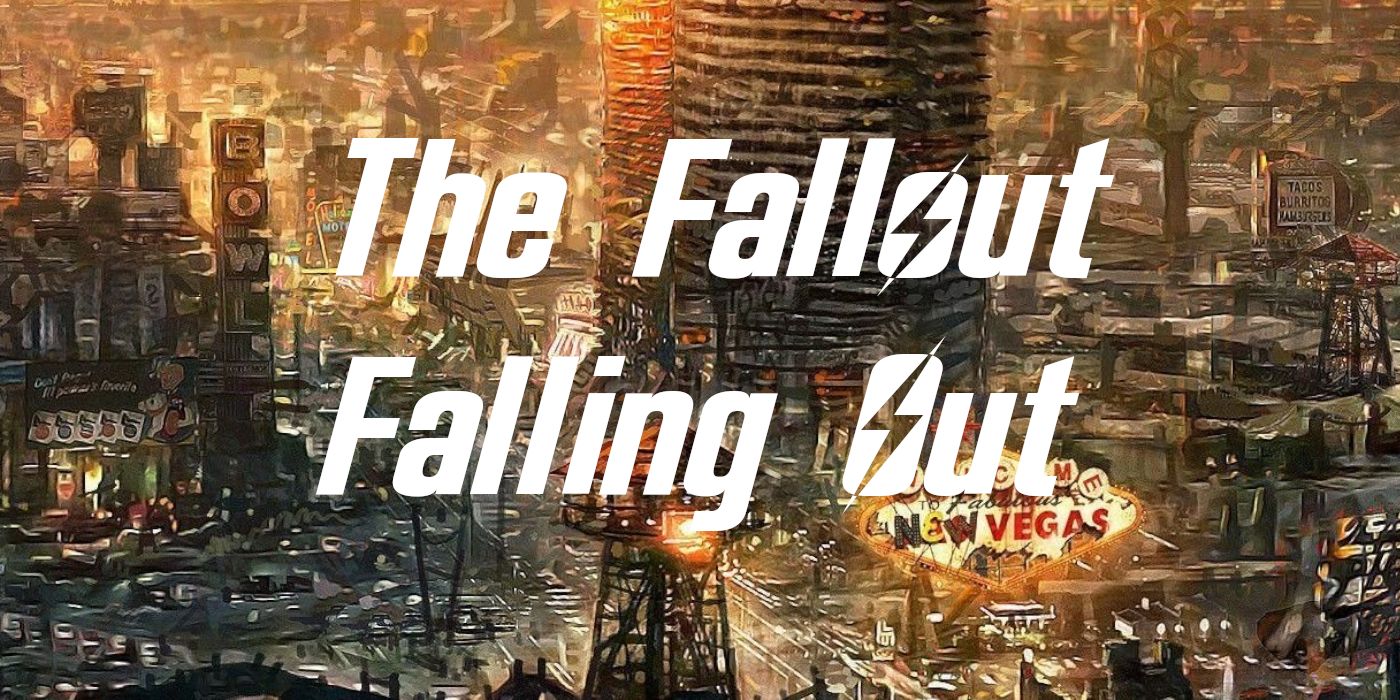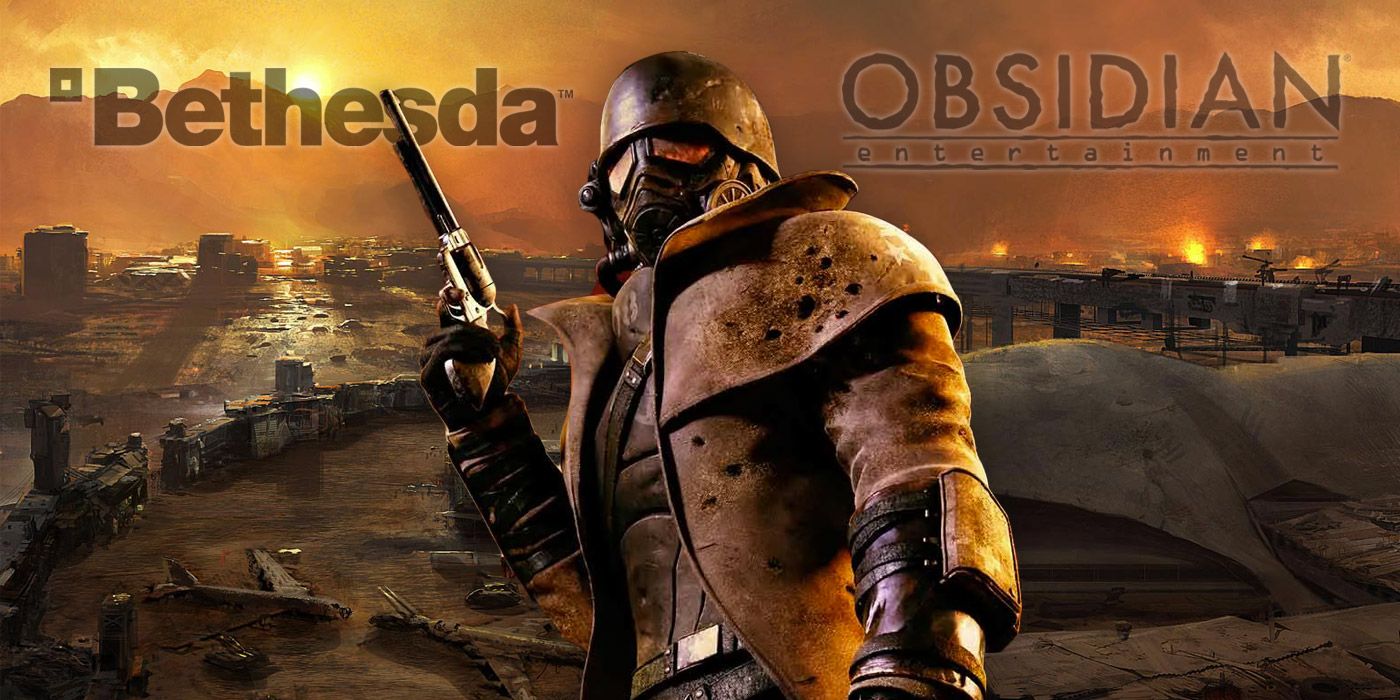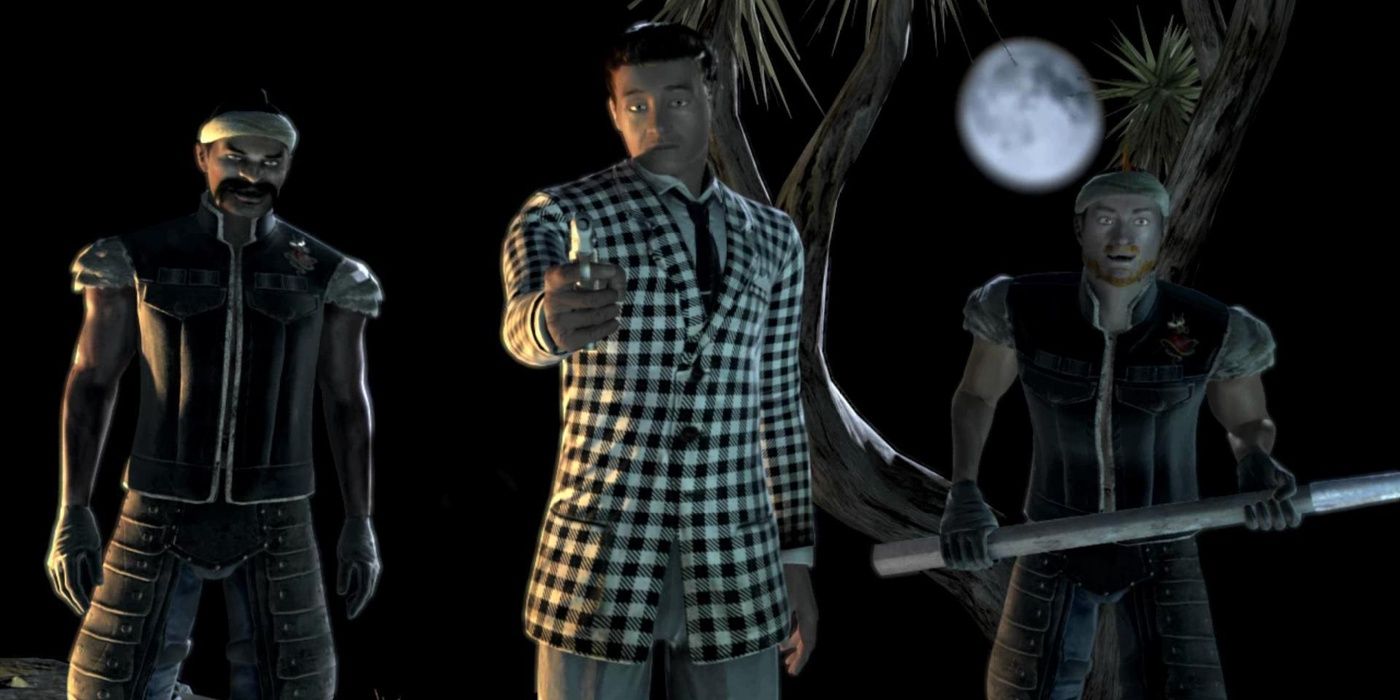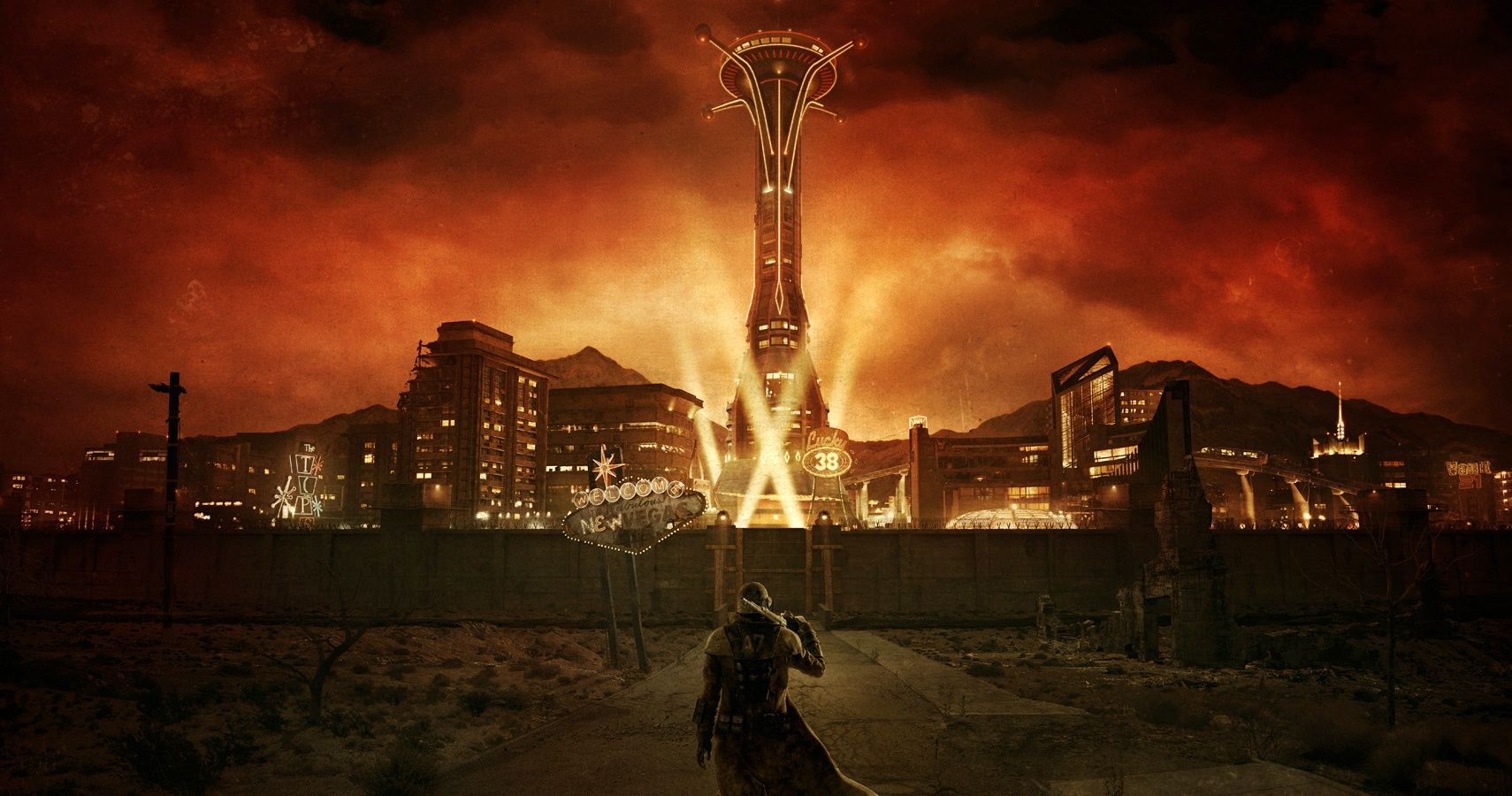The Bethesda-Obsidian Fallout: New Vegas Controversy Explained

Obsidian Entertainment and Bethesda have one of the most uniquely intertwined histories of any two game development studios, most famously collaborating when Bethesda licensed the franchise IP to Obsidian to make Fallout: New Vegas. Both are seen as giants of the RPG industry, but while Bethesda has released several disappointments in the past few years without risking going under, Obsidian has long been in a far more precarious financial state despite the consistent critical acclaim received by its crowd-funded games like Obsidian’s Pillars of Eternity sequel.
The partnership was, at times, far from a happy one. There was a lot of controversy surrounding the Bethesda-Obsidian relationship after Fallout: New Vegas. With Bethesda’s recent acquisition by Microsoft, there have been rumors that Obsidian could be interested in developing another Fallout game, but to understand the possibility of the two companies burying the hatchet, it is important to understand their falling out to begin with.

Over the last few years, Obsidian has been getting back on its feet. Both Pillars of Eternity games were critically acclaimed, but the studio, concerned that isometric RPGs are no longer a financially viable format, is using the setting of the world of Eora for Avowed, its upcoming first-person RPG title. Avowed is speculated to be aiming directly for The Elder Scrolls’ spot in the market, just as the studio’s last success, The Outer Worlds, marketed itself as a spiritual successor to the Fallout series.
Fallout: New Vegas is held up among the first-person Fallout games as a masterclass in storytelling, creative settings, hilarious factions, and bringing back the sharp satirical wit seen in Fallout 1 and Fallout 2, developed at Black Isle Studios where many Obsidian developers got their start. However, when the game released back in 2010, it was the subject of a controversy that nearly sunk Obsidian Entertainment entirely.
When licensing the Fallout IP to the Obsidian developers who had helped develop the concept to begin with, the contract that Bethesda put forward stipulated that New Vegas needed a Metacritic average of 85 in order for Obsidian to receive a significant bonus. This came at a time when Metacritic’s way of scoring games was under considerable scrutiny, reducing all reviews and by extension games themselves to a simple number out of 100.
Not only that, but treating reviews as a percentage like Metacritic drew some criticism. For example, a reviewer asked to rate Fallout: New Vegas on a scale of 1 to 100 might give the game an 85, but if they were rating the game out of 5 stars, they would give it 4 stars, not 4.25 stars, and that would only be counted as an 80%. This means that the format of the review systems themselves could lead to some misleading score averages on Metacritic that rounded down and did not reflect the opinions of the reviewers.

Fallout: New Vegas scored an 84 average on Metacritic, missing out on a lot of money for developing one of the best received Fallout games by a single point. Obsidian’s creative director Chris Avellone took to Twitter to explain that the development deal was “a straight payment, no royalties, only a bonus if we got an 85+ on Metacritic, which we didn’t,” leading many fans of the game to be disappointed with both Metacritic's system and Bethesda's outsourcing practices.
Without the unspecified bonus, Obsidian Entertainment was put under a lot of financial pressure. The news was published a day after Obsidian was forced to layoff many of its employees, having to cancel another planned Obsidian game codenamed “North Carolina” which the developer was hoping would keep it afloat at the time.
With a single percentage point between Obsidian and its projected future, it seemed unlikely that Obsidian would want to work with Bethesda again despite the success of Fallout: New Vegas in both its critical reception and its sales. However, with the acquisition Bethesda’s parent company by Microsoft, that could all be about to change.
Obsidian Entertainment was bought by Microsoft back in 2018, and with both Bethesda and Obsidian now under the same roof, another New Vegas-esque collaboration could be in the pipeline. Though Bethesda still owns the rights to Fallout, Microsoft could negotiate a more collaborative contract between the two studio’s that makes sure that Obsidian isn’t put under the same financial pressure as it was under after the release of New Vegas.

Whether or not a new game between the two would literally be a sequel to New Vegas is not the main takeaway from the acquisition. What is important, however, is that a studio like Obsidian could now have access to some great IPs, with developers tied deeply to the origins of the Fallout franchise and a proven ability to breathe new creative life into old franchises.
When asked on Twitter whether or not Fallout: New Vegas 2 was a legitimate possibility, the official Obsidian Twitter account responded with a shrug emoji, which could mean that it’s largely up to Bethesda as to whether or not the two studios will collaborate again and bury the hatchet. Some have taken this as a tease, though, as if the shrug wasn't of not knowing but of being unwilling to say. However, the fan response to the possibility of another Obsidian-made Fallout game, especially after many fans found Fallout 4 disappointing, has been huge.
With Obsidian relying largely on unproven IPs with games like Avowed for its future and Bethesda dealing with recent disappointments and a long wait until The Elder Scrolls 6, there may be a big financial incentive for Microsoft to encourage a collaboration between the studios once again.
Not only that, but New Vegas took all of its primary assets from Fallout 3, and Obsidian could easily save money by using the Fallout 4 engine in a sequel, making it another safe financial bet for all companies involved at a time of uncertainty for the RPG industry as gaming enters into the next generation of console hardware. The future of Obsidian and Bethesda’s relationship remains to be seen, but fans who have been holding out for Fallout: New Vegas 2 might have more reason to be hopeful now than they have been for the last decade.
Fallout New Vegas is available now on PC, Xbox 360, and PS3.

Post a Comment